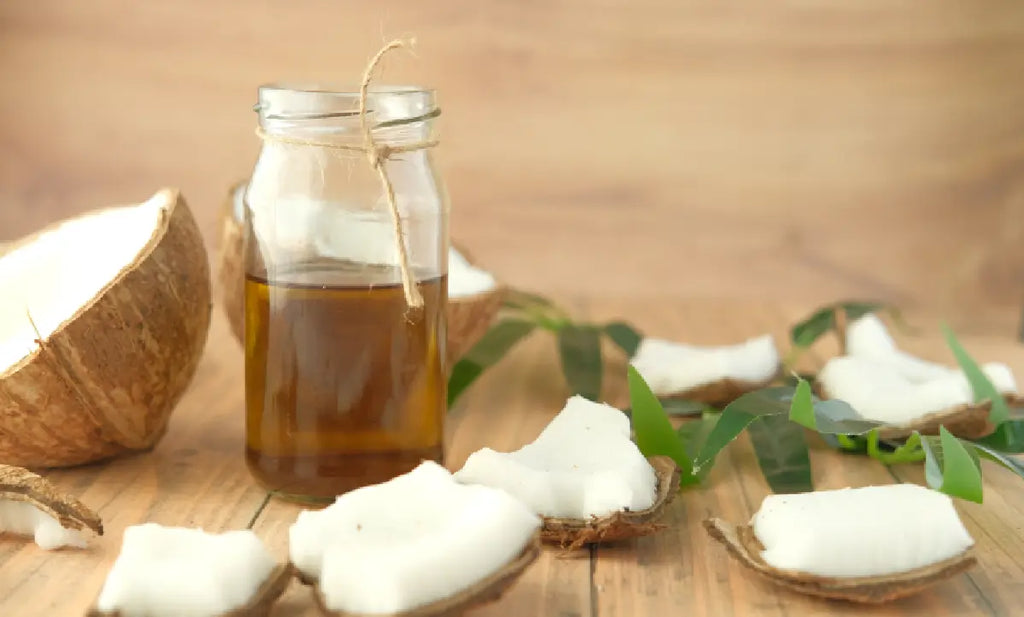Many people keep coconut oil on hand for its wide range of uses, from cooking to moisturizing skin and conditioning hair. But what about wound healing? Could this natural oil help speed recovery from cuts, scrapes, or minor burns? While coconut oil shows promise in some areas, it's important to understand both the potential benefits and limitations before using it as part of a wound care routine.
What Is Coconut Oil?
Extracted from the white flesh inside coconuts, coconut oil is a plant-based oil commonly used for various purposes. It contains a mix of saturated fats, with lauric acid being its most prominent fatty acid. Lauric acid is known for its antimicrobial properties, which has led researchers and health enthusiasts to explore coconut oil for skin applications, including wound care.
Potential Benefits of Coconut Oil for Wounds
-
Moisture Retention
One of the key elements in wound care is keeping the area moist to promote healing and minimize scarring. Coconut oil acts as an occlusive agent, meaning it forms a protective barrier over the skin to reduce moisture loss. This could help keep the wound environment optimal for tissue regeneration.
-
Antimicrobial Properties
Lauric acid, which makes up nearly 50% of coconut oil's fatty acid content, has demonstrated antimicrobial effects in lab studies. Some research indicates it can reduce the presence of certain bacteria, including Staphylococcus aureus, a common pathogen found in skin infections. However, this does not mean coconut oil should replace disinfectants or medically-approved antimicrobial ointments.
-
Anti-Inflammatory Effects
Studies in animals and cell cultures have suggested that coconut oil may have anti-inflammatory properties, which can be beneficial in reducing redness and swelling around a wound. However, human clinical trials are limited, and further research is needed to confirm these effects in practical wound care.
-
Rich in Antioxidants
Coconut oil contains vitamin E and other antioxidants that may help reduce oxidative stress, which is known to impair the wound healing process. Supporting the skin’s natural defenses could potentially enhance recovery when used as part of a comprehensive care plan.
Risks and Considerations
Despite its benefits, coconut oil is not a cure-all, and there are important factors to keep in mind:
-
Allergic Reactions
While uncommon, coconut oil can cause skin irritation or allergic responses in certain individuals. It's recommended to do a patch test on a small area of skin before using coconut oil more broadly, particularly on damaged or broken skin. -
Risk of Infection
Because coconut oil forms a barrier on the skin, applying it to an unclean wound could trap bacteria and lead to infection. Proper wound cleaning with sterile solutions should always be the first step, and coconut oil should never be used as a substitute for medical-grade treatments or prescribed antibiotics. -
Lack of Regulation
Coconut oil sold for cosmetic or culinary use is not subject to the same regulatory standards as products specifically designed for wound care. This means purity and contamination levels can vary. For wound care, always opt for virgin, cold-pressed coconut oil from a reputable brand.
What the Science Says
Animal studies have shown that coconut oil, particularly when used in combination with other ingredients like antibiotics, may improve wound healing time. For example, one study in rats found that wounds treated with coconut oil healed faster and with less scarring. However, evidence in human trials is limited and inconclusive. The current body of research supports coconut oil as a supportive element in wound care, rather than a primary treatment.
When to See a Doctor
While minor cuts and scrapes may benefit from home remedies, it’s crucial to know when to seek medical help. Deep wounds, burns, punctures, or wounds that show signs of infection (such as increased redness, warmth, pus, or swelling) should always be evaluated by a healthcare professional. In such cases, coconut oil should not be used as a substitute for medical-grade treatments.
Final Thoughts
Coconut oil can be a helpful addition to your wound care toolkit, particularly for minor skin injuries. Its moisturizing, antimicrobial, and anti-inflammatory properties may support healing when used correctly and safely. However, it should not replace established medical treatments or professional care, especially for serious wounds.
At Celluheal, we support holistic approaches to health that are grounded in science. If you’re considering using natural products like coconut oil in your skincare or wound care regimen, speak with a healthcare provider to ensure it’s appropriate for your specific needs.

